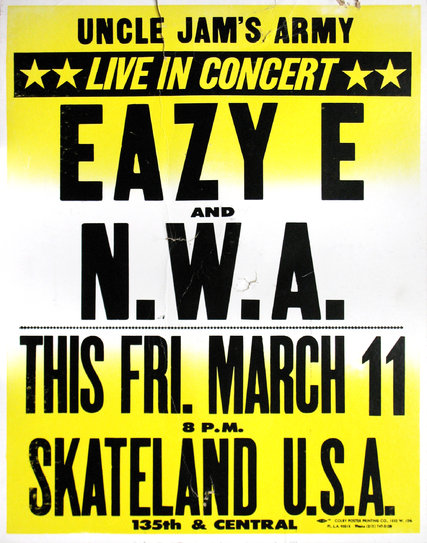Minimum Wage Machine
Blake Fall-Conroy:
Minimum Wage Machine (Work in Progress) (2008-2010)
Custom electronics, change sorter, wood, plexiglas, motor, misc. hardware, pennies. (approx. 15 x 19 x 72 inches)
The minimum wage machine allows anybody to work for minimum wage. Turning the crank will yield one penny every 4.5 seconds, for $8.00 an hour, or NY state minimum wage (2014). If the participant stops turning the crank, they stop receiving money. The machine’s mechanism and electronics are powered by the hand crank, and pennies are stored in a plexiglas box. The MWM can be reprogrammed as minimum wage changes, or for different wages in different locations.
You Can't Walk in a Straight Line—And That's Great for VR
Sarah Zhang in Wired:
Humans, quite simply, suck at walking in straight lines: Give a man a blindfold, and he will walk around in circles. In virtual reality, though, this failing becomes very convenient. People are so bad at knowing where they are in space that subtle visual cues can trick them into believing they’re exploring a huge area when they’ve never left the room—a process called redirected walking.
With VR technology getting ever better, people could one day explore immersive virtual spaces—like buildings or even whole cities—on foot in head-mounted displays. But it’s not very immersive if you end up smacking into a real-life wall. “This problem of how you move around when in VR is one of the big unsolved problems of the VR community,” says Evan Suma, a computer scientist at the University of Southern California.
That’s where redirected walking comes in. People don’t really notice, it turns out, if you increase or decrease the virtual distance they had to walk by 26 percent or 14 percent, respectively. Or shift the virtual room so they see their path as straight when their real path is curved. Or turn the room up to 49 percent more or 20 percent less than the rotation of their heads.
Romanian city offers free rides to people reading on the bus
Only for a week, why not always?
“I believe that it’s better to promote reading by rewarding those who read, instead of criticising the ones who don’t,” said Miron on arts website Bored Panda this week.
What Makes A Great DJ?
What makes a great DJ? Kristan Caryl asked a group of top selectors including Dave Clarke, Mr G, Mosca and Serge.
Spencer Parker: DJs should play what the fuck they love, or give the fuck up! I know for a solid gold fact that there are records out there, at this very time, which I hate, that are the biggest hype tracks of the moment and that would definitely get a big reaction if I were to play them. But I never play them. The next DJ can play those records and he or she can get all the glory. And thats’s fine by me. I’m there to play the records I adore, otherwise what’s the point?
Doubts Raised About Breast Cancer Treatments for Early Stage Condition
Gina Kolata in the NYT:
As many as 60,000 American women each year are told they have a very early stage of breast cancer — Stage 0, as it is commonly known — a possible precursor to what could be a deadly tumor. And almost every one of the women has either a lumpectomy or a mastectomy, and often a double mastectomy, removing a healthy breast as well.
Yet it now appears that treatment may make no difference in their outcomes. Patients with this condition had close to the same likelihood of dying of breast cancer as women in the general population.
The curious case of whistled languages and their lack of left-brain dominance
Cathleen O’Grady in Ars:
Whistled Turkish is a non-conformist. Most obviously, it bucks the normal language trend of using consonants and vowels, opting instead for a bird-like whistle. But more importantly, it departs from other language forms in a more fundamental respect: it’s processed differently by the brain.
Language is usually processed asymmetrically by the brain. The left hemisphere does the heavy lifting, regardless of whether the language in question is spoken, written, or signed. Whistled Turkish is the first exception to this rule, according to a paper in this week’s issue of Current Biology. There’s evidence that both hemispheres pitch in about the same amount of effort when processing the whistled words.
This evidence could contribute to our general understanding of how the brain works by answering some of the many mysteries about how and why we have asymmetrical processing. And perhaps very far down the road, this research could help stroke sufferers regain some of their lost communicative skills.
The Problem We All Live With
Brutal This American Life episode:
Right now, all sorts of people are trying to rethink and reinvent education, to get poor minority kids performing as well as white kids. But there’s one thing nobody tries anymore, despite lots of evidence that it works: desegregation.
Via kottke.org
The Roller Rink Origins of N.W.A.
In a city Balkanized by gangs, Skateland became a refuge. Schweisinger thought the skating business could be successful. He didn’t imagine that within few months his rink would become the most important hip-hop venue in the history of South Los Angeles.
The Hell You Say
The new battles over free speech are fierce, but who is censoring whom?
Kelefa Sanneh in The New Yorker:
A patron stepped into the d.j. booth to ask that the song be cut short—she later explained that she wanted to “create a safe space,” and that Thicke’s lyrics evoked threats of sexual violence. The d.j. rebuffed her, and in the days that followed she and her allies took to social media to voice their dissatisfaction, suggesting that the pub was promoting “rape culture.” Before long, Fitzgerald’s conceded defeat, apologizing to the patron on Facebook and promising that “Blurred Lines” would not be played there again and that the offending d.j. would never be invited back.
Via NextDraft
The Work We Do While We Sleep
For a long time, sleep’s apparent uselessness amused even the scientists who studied it. The Harvard sleep researcher Robert Stickgold has recalled his former collaborator J. Allan Hobson joking that the only known function of sleep was to cure sleepiness. In a 2006 review of the explanations researchers had proposed for sleep, Marcos Frank, a neuroscientist then working at the University of Pennsylvania (he is now at WSU Spokane) concluded that the evidence for sleep’s putative effects on cognition was “weak or equivocal.”
But in the past decade, and even the past year, the mystery has seemed to be abating. In a series of conversations with sleep scientists this May, I was offered a glimpse of converging lines of inquiry that are shedding light on why such a significant part of our lives is spent lying inert, with our eyes closed, not doing anything that seems particularly meaningful or relevant to, well, anything.
overshare: the links.net story
overshare: the links.net story is a documentary about fumbling to foster intimacy between strangers online. Through interviews, analysis and graphic animations, I share my motivations, my joys and my sorrows from pioneering personal sharing for the 21st century.
Via kottke.org
The way we think about charity is dead wrong
Activist and fundraiser Dan Pallotta calls out the double standard that drives our broken relationship to charities. Too many nonprofits, he says, are rewarded for how little they spend – not for what they get done. Instead of equating frugality with morality, he asks us to start rewarding charities for their big goals and big accomplishments (even if that comes with big expenses).
The problem however is that if the extra spending just takes money away from other charities, then it is a net loss in the whole picture. The only way this wins is if the 2% of GDP grows, and the money is taken away from the for profit sector. I think this is unlikely to happen, charitable giving is probably pretty firmly stuck there. without societal change (which is why he is spending the money, to create this, but, risky).
Can we reverse the ageing process by putting young blood into older people?
Ian Sample at The Guardian:
A series of experiments has produced incredible results by giving young blood to old mice. Now the findings are being tested on humans.
Could regularly eating spicy foods help you live longer?
Ariana Eunjung Cha in The WaPo:
Scientists seeking to better understand the alluring properties of hot foods have found evidence that we may be so drawn to them because they are good for us. While the research is still preliminary, it suggests spicy food may have all kinds of health benefits ranging from boosting metabolism and preventing gastric damage to reducing the risk of heart disease and cancer.
The newest study, published this week in The BMJ, finds a link between regular consumption of spicy foods and a lower risk of death.
Who Runs the Streets of New Orleans?
David Amsden in The New York Times:
On the morning of Sunday, March 29, Sidney Torres was sipping an espresso in the kitchen of his mansion on the edge of the French Quarter when a jarring notification lit up his iPad and two iPhones. Pimps fighting with drug dealers and johns. Man has gun. Hurry. The message came from a neighbor 10 blocks away, on St. Louis Street, and was sent through a venture Torres started four days earlier: a private police patrol that could be summoned via mobile app.
How I Gave Up Alternating Current
Rob Rhinehart lets the crazy out:
The walls are buzzing. I know this because I have a magnet implanted in my hand and whenever I reach near an outlet I can feel them.
(It’s some odd blend of viral marketing and true insanity, and I love it.) Orginally at http://robrhinehart.com/?p=1331, but his site is now defunct, so link is to archive.is.
The Man Who Shot Michael Brown
Jake Halpern in The New Yorker:
Wilson said that, despite what he’d said about experiencing “culture shock,” race hadn’t affected the way he did police work: “I never looked at it like ‘I’m the only white guy here.’ I just looked at it as ‘This isn’t where I grew up.’ ” He said, “When a cop shows up, it’s, like, ‘The cops are here!’ There’s no ‘Oh, shit, the white cops are here!’ ” He added, “If you live in a high-crime area, with a lot of poverty, there’s going to be a large police presence. You’re going to piss people off. If police show up, it’s because it’s something bad, and whoever’s involved can’t figure out the problem for themselves.”
He continued, “Everyone is so quick to jump on race. It’s not a race issue.” There were two opposing views about policing, he said: “There are people who feel that police have too much power, and they don’t like it. There are people who feel police don’t have enough power, and they don’t like it.”
Training Officers to Shoot First, and He Will Answer Questions Later
Matt Apuzzo in The New York Times:
A string of deadly police encounters in Ferguson, Mo.; North Charleston, S.C.; and most recently in Cincinnati, has prompted a national reconsideration of how officers use force and provoked calls for them to slow down and defuse conflicts. But the debate has also left many police officers feeling unfairly maligned and suspicious of new policies that they say could put them at risk. Dr. Lewinski says his research clearly shows that officers often cannot wait to act.


